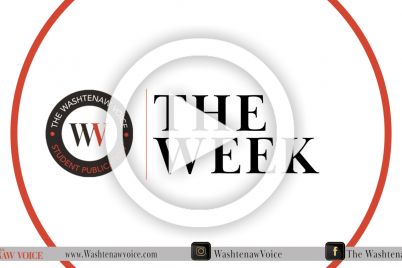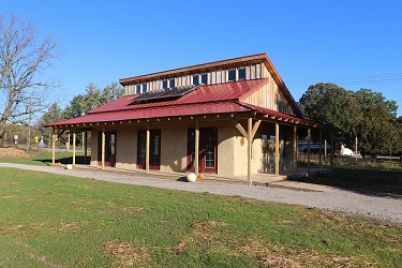
New Yorkers will be allowed to cast their ballots early this year under the state’s new early-voting law. Designated polling locations will be open from Oct. 26 through Nov. 3, 2019. Election Day is Tuesday, Nov. 5, 2019. Ellen M. Blalock | The Post-Standard
Lilly Kujawski
Editor
College students sometimes get a bad rap for low voting rates, but over the last couple years they’ve begun to put that stereotype to rest by more than doubling the turnout rate from 2014 to 2018.
The college student voter turnout rate across the United States increased from 19% in 2014 to 40% in 2018, according to the 2018 National Study of Learning, Voting and Engagement (NSLVE) from Tufts University.
In 2016, 50.5% of WCC students made it to the polls for the presidential election, according to an NSLVE report conducted for WCC.
At WCC, some students are spearheading voting initiatives to motivate their peers to cast their ballots. Alysha Rossetto, a 19-year-old political science major, is one such student. Rossetto is a student co-leader of the WCC Votes initiative on campus, which is part of the national Campus Vote Project organization.
Rossetto works with co-leader of the project, Bryce Robertson, along with staff from the Student Development and Activities office, to develop a plan each semester for how they can best reach students and spark civic engagement. In the weeks leading up to the presidential primary, the initiative has upped its game with a primary party, an ice cream social and voter registration tables.
While working to get students registered to vote, Rossetto said she’s noticed strong and differing opinions from students about voting.
“Either they don’t really see the point in voting and don’t really want to put in any effort, or they’re super, super passionate about voting—they want to know more information, they want to figure out what’s going on, they want to make sure that they’re registered,” Rossetto said.
Some students might not vote because they feel discouraged by the system and they don’t think their vote matters as much as it should, Rossetto said.
“Young people especially have been made to feel like their voice isn’t as important or they shouldn’t have as much of a say in the country because they’re too young to understand,” Rossetto said.
However, she said this misses the point that when young people vote, they are voting for their future.
“This country is something that we’re inheriting,” Rossetto said. “We have to know how it runs and we also have to have a say in how it runs.”
One reason it’s so important to vote is because of historically how hard many people have fought for the right to vote and choosing not to vote is like “letting all their suffering go to waste,” Rossetto said. Voting is also key to our democracy, she said.
“Our government is fundamentally built on the ability for citizens to have a say in their government,” Rossetto said. “The only way that our government is ever going to work or it’s ever going to represent us in any type of way is if we go out and make sure that they hear us, and voting is one of the best ways to do that.”
She added that in a swing state like Michigan, your vote could be the one that flips it.


